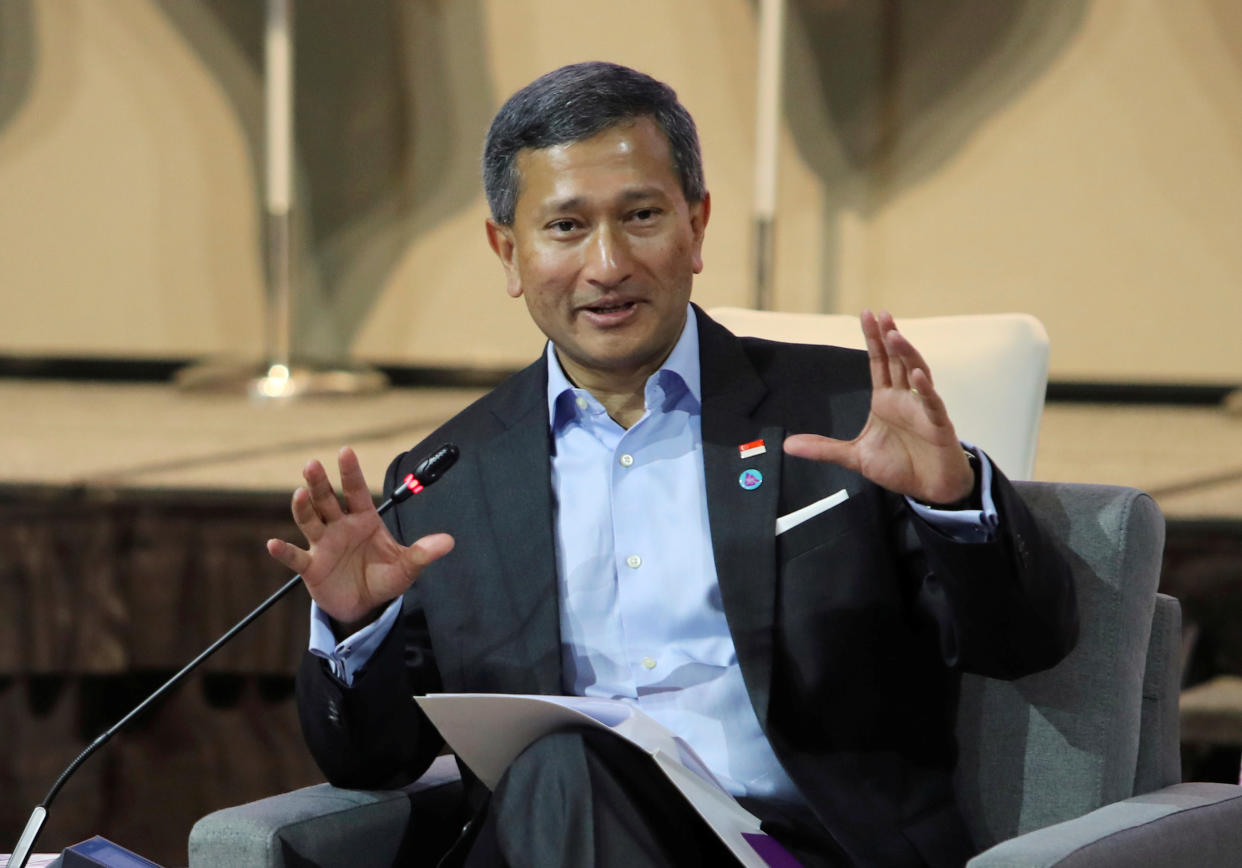Maritime dispute won't affect viability of upcoming Tuas mega port: Vivian Balakrishnan

The ongoing maritime dispute between Malaysia and Singapore will not affect the viability of the upcoming Tuas mega port, said Acting Transport Minister Vivian Balakrishnan in Parliament on Thursday (7 March).
“Development works are proceeding as planned, and there will be no impact to access for ships calling at the (Tuas) terminal in the future,” Dr Balakrishnan said during the Ministry of Transport’s Committee of Supply Debate.
He was speaking on behalf of Transport Minister Khaw Boon Wan, who fractured his arm last month and is recuperating after a surgery.
Joint announcements to come
During his speech, Dr Balakrishnan recapped how Malaysia had decided to unilaterally extend the Johor Bahru Port Limits into Singapore’s territorial waters off Tuas on 25 October last year. The move went beyond even Malaysia’s own territorial sea claims as per its 1979 map, which Singapore has consistently rejected.
“The inescapable conclusion is that the new Johor Bahru Port Limits transgress into what are indisputably Singapore Territorial Waters. Since then, both sides have been engaged in intensive discussions to de-escalate the situation,” he said.
Dr Balakrishnan, who is also Minister for Foreign Affairs, added that “reasonable progress” had been made so far and that “some joint announcements” would be made within the next two weeks.
Airspace issues
With regard to Singapore’s airspace issues,Dr Balakrishnan said that Singapore takes its air traffic management responsibilities entrusted to it by the International Civil Aviation Organisation (ICAO) “very seriously”.
Noting that Singapore began providing air traffic services for the region in 1946, he added that the nation last year managed 740,000 flights in the Singapore Flight Information Region (FIR), which includes parts of southern Peninsular Malaysia.
Still, Dr Balakrishnan noted that Malaysia and Indonesia want to changes to the region’s airspace arrangements and that Singapore is “willing to address their concerns”.
“Any changes to these arrangements, if warranted, must be done properly, in accordance with the rules, requirements and decisions set out by ICAO,” he said.
Such changes, if they were to happen, must further enhance safety and efficiency, and benefit airspace users with stakeholders such as airlines consulted, he added.
Dr Balakrishnan also briefly addressed the issue of the suspension of Seletar Airport’s instrument landing system and the imposition of a restricted area over Pasir Gudang in Johor.
“We have explained to Malaysia that Seletar Airport has been serving charter, medevac and MRO flights without issues for decades; and should continue to operate normally,” he said.
“I spoke to (Malaysian Transport) Minister (Anthony) Loke on 27 February and we are both closely monitoring the progress of these sensitive discussions between our officials.”
Related stories:
Singapore-Malaysia working group had ‘constructive discussions’ on maritime issues
Singapore and Malaysia take immediate suspension steps over Seletar Airport and Pasir Gudang


